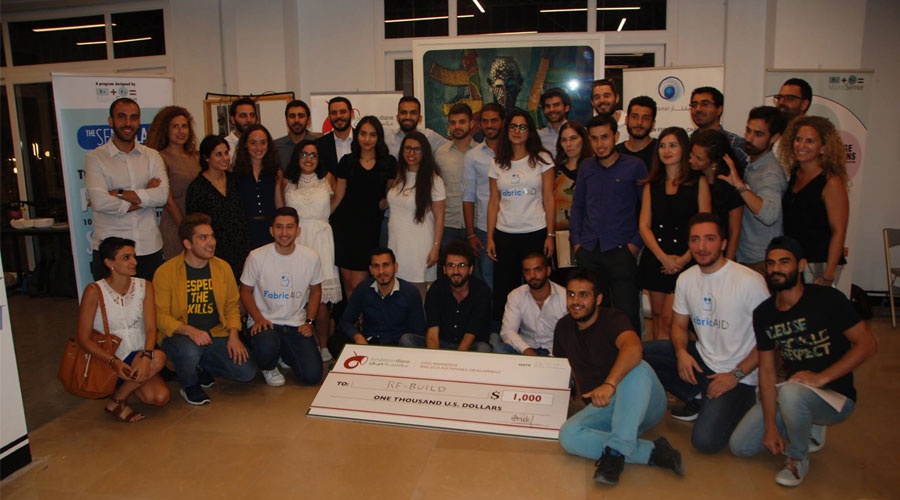Lebanese social startups develop solutions that ‘Makesense’

Senselab, a three-week bootcamp powered by Makesense Lebanon, gathered various Lebanese ventures aiming at designing, testing, improving and validating social and environmental solutions to the country’s most pressing problems.
This project took place from July 10 till July 28 at Antwork, Beirut.
After organizing a series of workshops across the country and screening over 75 applications, 10 projects were selected to join the bootcamp:
-
Blocks 4 a Cause: Manufacturer of lego building blocks made from recyclables to be used in refugees camps.
-
Fabricaid: A textile reclaimer that provides good quality second-hand clothing at affordable prices to needy people.
-
Ivy People: A platform that markets handicrafts of Lebanese artisans while telling the stories behind them.
-
Kharzaya: An online store that sells handmade products created by underprivileged women and helps them develop their designing skills.
-
Kon Balsaman (Be a balm in English): An initiative that offers first aid courses to refugees.
-
Labne&Facts: An online media that aims to bring Lebanese people together, no matter what were their beliefs, by exploring Lebanese identities on social media.
-
Meatable: Distributor of food sensors to prevent food poisoning.
-
Smart Bus Stops: Solar-powered bus stops aiming at organizing public transportation.
-
Re-Build: Producer of concrete-like building blocks made of waste mixed with other materials.
-
The Mobile Aquaponic Mini Farm: An aquaponic system to grow food soilless and without any carbon emission.
“In addition to providing participants with technical and soft skills, the main objective of Senselab was to allow social ventures to test their solutions in real-life situations and give them the possibility to refine them. The program included three iteration loops, each one representing an opportunity of improvement,” Thomas Vailleux, the bootcamp designer, told Wamda.
Nourhan Mokahal, Thomas Vailleux and Elsa Abi Khalil
“During the past three weeks, I assessed the utility of why my idea, met people who went through the same experience, and learned the basics of building a business and how to move forward,” said Julian Raad, the founder of The Mobile Aquaponic Mini Farm.
“The bootcamp provided me with soft skills and networking opportunities. Thanks to it, I have finally allocated time to my project,” added Maher Hodroj, the engineer behind Re-Build.
The bootcamp was concluded with a pitching session during which the social startups presented their solutions to the jury and to the audience. Each jury member had a prize to offer and the winners were Fabricaid, Kharzaya, Re-Build, and Smart Bus Stops.
“We will work on reinforcing our existing partnerships with our funders, ‘L’Atelier’ and ‘La Fondation des Cèdres’, and with the entrepreneurship support institutions to build an incubator for the Lebanese social enterprises, which will be launched in the beginning of 2018,” announced Elsa Abi Khalil, the community developer at Makesense Lebanon.
Makesense Lebanon is part of a global initiative, Makesense, which mission is to solve the challenges of social entrepreneurs wherever they are. It has an international social incubation program, the Sensecube, that is already implemented in Paris, Mexico City and Dakar. "Lebanon is the first MENA country to join the Sensecube program, and we hope it will set the example for others to follow," concluded Elsa.
Feature images via Makesense.


